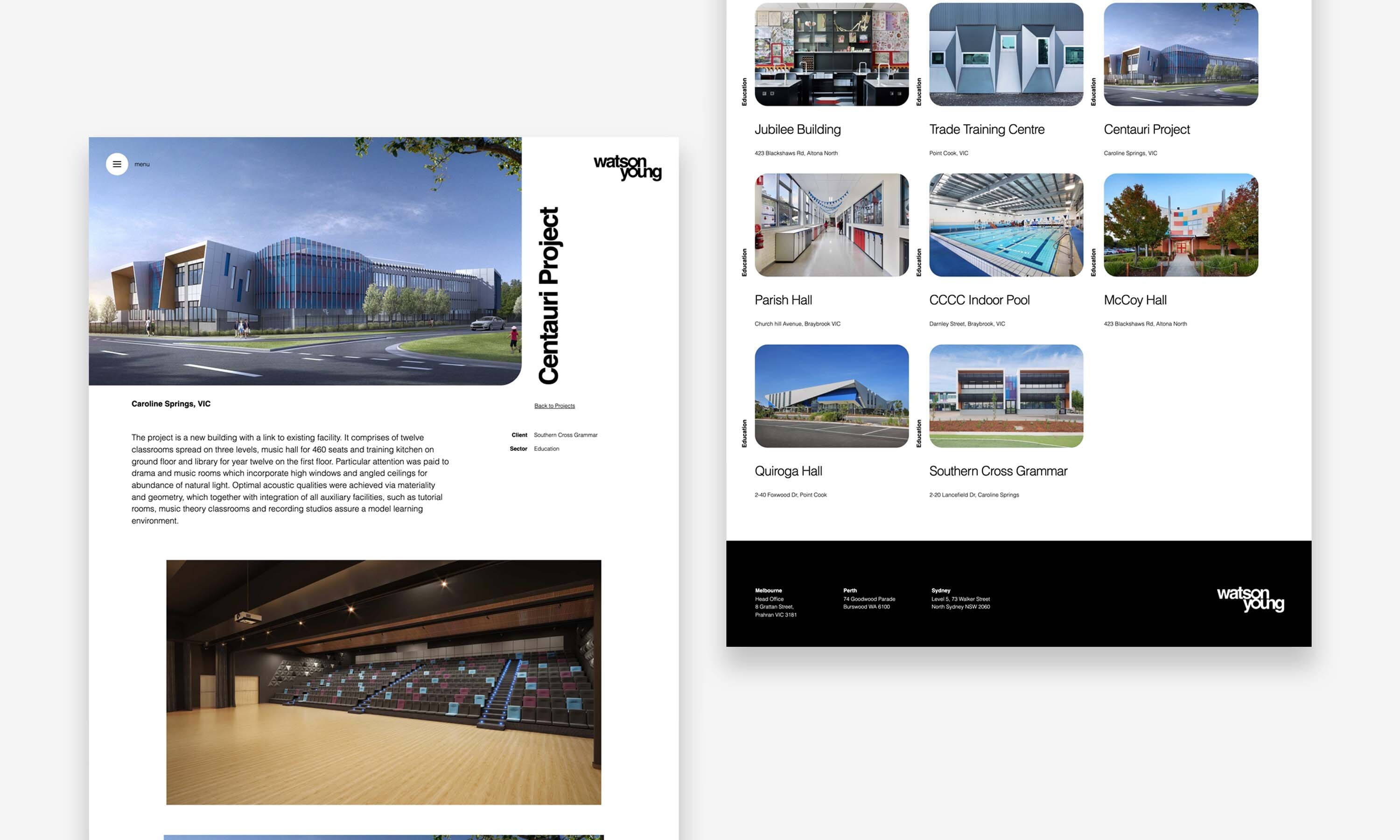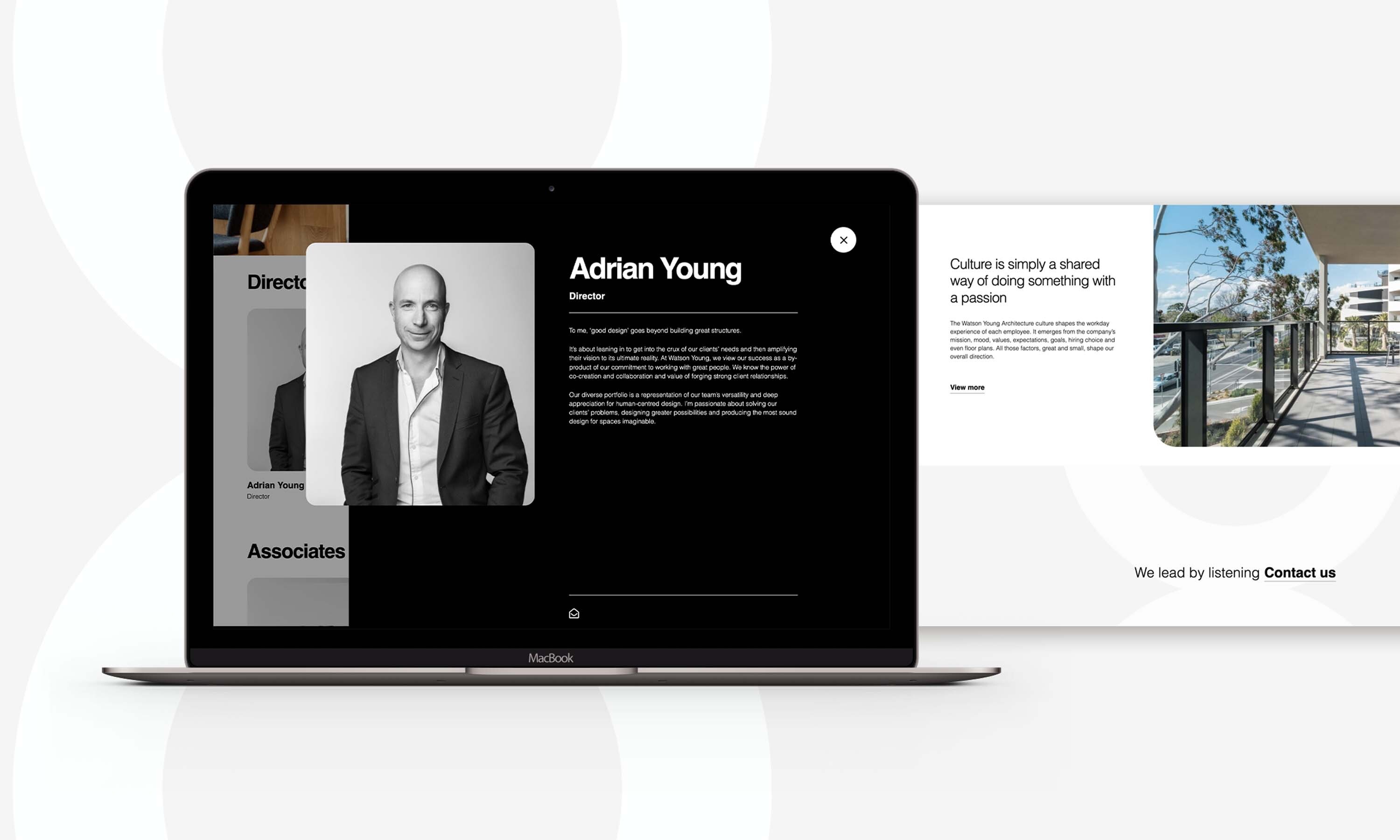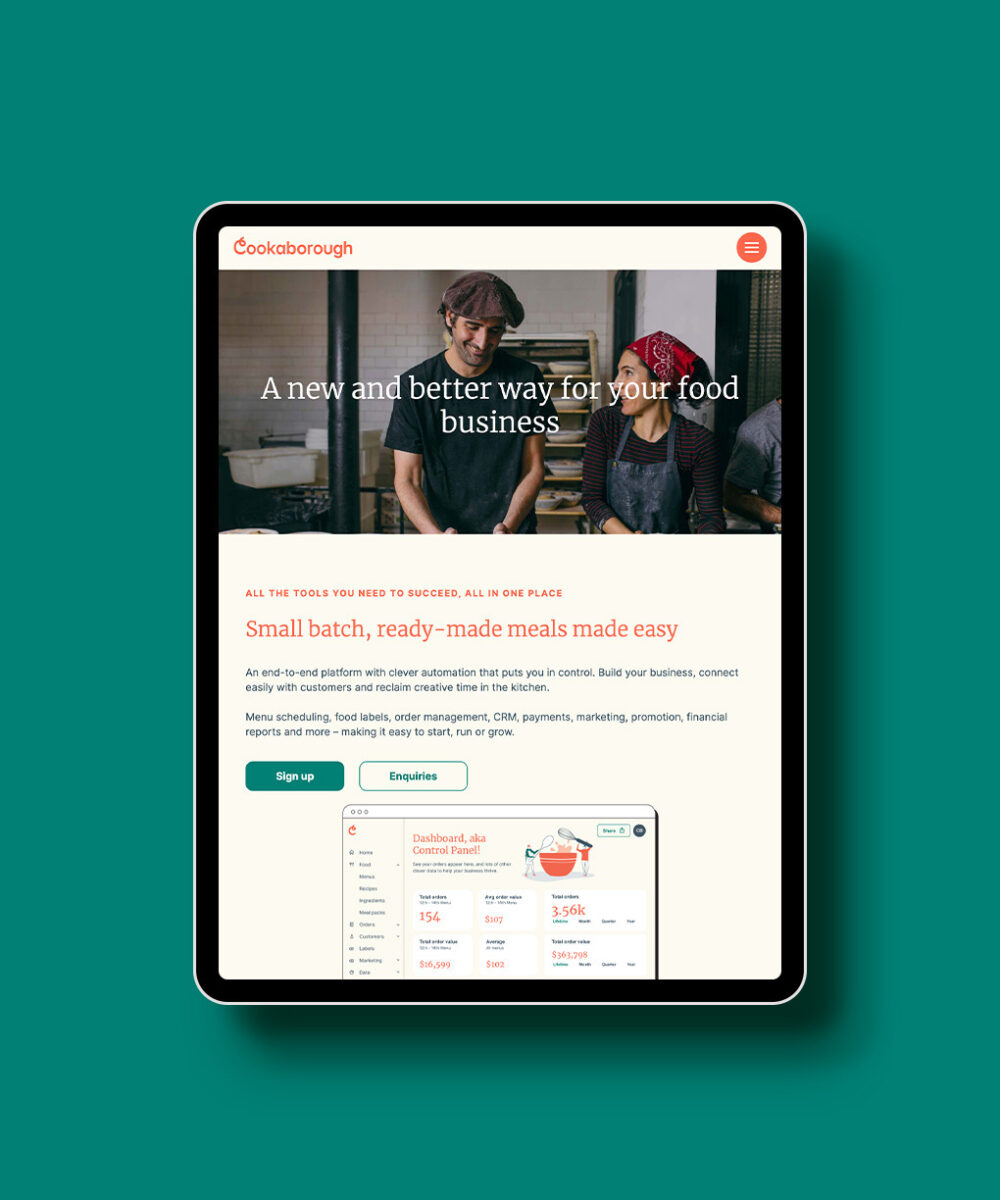Watson Young Architects
Website to match a striking brand personality and tone.
Watson Young Architects are a multi-disciplinary firm that is able to create bold architecture in both form and functionality. Based in Melbourne, Sydney and Perth, they work with clients and key stakeholders to deliver outstanding projects across both the commercial and domestic landscape.

We used Webflow to create the website as it gave us the flexibility to build a robust website relatively quickly and efficiently. Closing the gap between design and development, Webflow removes the need for plugins and excessive coding. The CMS also allows Watson Young Architects to create and manage their content easily as well as display their key projects across each of their service offerings.
After understanding what Watson Young Architects needed from a content perspective, our developers used strong UX and UI design to ensure the headers were clear, included more call to actions and that the website was performing better from an SEO perspective. Most importantly we were able to create a website that is aligned with Watson Young Architects’ tone as a brand.

The Process
A discovery workshop was used to identify how to improve the current website offering and we conducted a content audit to ensure the new website would showcase the Watson Young Architects brand and projects.
Our team used mood boards and wireframing to determine the overall concept we were trying to achieve with the new website then used prototypes and user flows to inform the design and build decisions. Figma was used throughout this process which allows for simple collaboration with changes made easily and multiple people able to work in the project at the same time and suggest changes. It also emulates the user experience, ensuring that the prototype is as close to the final product as possible.

The Outcome
The Thirst Creative team was able to efficiently create a clean and easy to navigate website that is aligned with Watson Young Architects as a brand. The website is content focused and showcases the brilliant work the company does for their clients.

